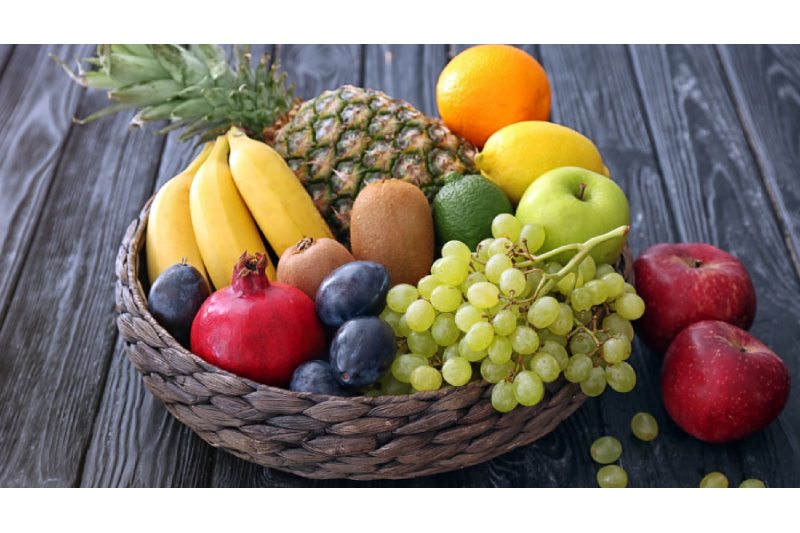Include fruits in your diet on a regular basis.Fruits are a great source of important nutrients, vitamins, and antioxidants. They enhance digestion, strengthen the heart, increase immunity, and give you energy. Frequent ingestion enhances general wellbeing and lowers the risk of chronic illnesses. Try to include a range of colors in your diet.
1. Jamun
Jamun, or black plum, is good for diabetics since it helps with digestion, increases immunity, and regulates blood sugar. Packed with iron, vitamins A and C, and antioxidants, it supports overall wellbeing by enhancing heart health, promoting good skin and hair, and reducing inflammation.
2. Amla
Amla strengthens the immune system and supports good skin because it is high in antioxidants and vitamin C. It facilitates digestion and supports blood sugar regulation. Frequent consumption helps lower inflammation and strengthen the heart.
3. Guava
Rich in antioxidants, vitamin C, and dietary fiber, guavas promote healthy digestion and the immune system. It is good for heart health and aids with blood sugar regulation. The fruit is also credited with enhancing vision and smoothing out skin texture.
4. Apple
Apples help with digestion, blood sugar regulation, and heart health. Packed with fiber, antioxidants, and vitamins C and K, they strengthen the immune system, aid in managing weight, and support good skin. Additionally anti-inflammatory, apples may lower the chance of developing chronic illnesses.
5. Papaya
In addition to having digestive enzymes like papain that help with digestion, papaya is a rich source of vitamins A, C, and E. It encourages healthy skin, lowers inflammation, and strengthens the immune system. The fiber in the fruit aids in controlling weight as well.
6. Mango
Mangoes are high in dietary fiber, antioxidants, and vitamins A and C. They strengthen the immune system, assist eye health, and enhance digestion. Mangoes also aid to promote skin health and decrease cholesterol.
7. Wooden Apple
Bailed fruit, or wood apple, improves immunity, facilitates better digestion, and maintains liver health. Packed with antioxidants, vitamins A and C, and fiber, it also possesses anti-inflammatory and blood sugar-regulating qualities. Its inherent laxative properties help to ease constipation and enhance digestive health in general.
8. Banana
Bananas are a great source of dietary fiber, potassium, and vitamin B6. They give rapid energy, improve heart health, and aid to maintain blood pressure. Because of their high fiber content, bananas can also help with weight loss and digestion.
9. Jackfruit
Vitamins C, A, and several B vitamins are abundant in jackfruit, along with nutritional fiber. It benefits heart health, strengthens the immune system, and enhances digestion. The fruit’s anti-inflammatory and pro-chronic illness qualities are further enhanced by its antioxidant content.
10. Pomegranate
Pomegranates are rich in fiber, vitamins C and K, and antioxidants. They aid with digestion, strengthen the immune system, and lower blood pressure and cholesterol to improve heart health. Pomegranates may enhance memory and have anti-inflammatory qualities as well.
11. Custard Apple
Potassium, magnesium, and vitamins C and B6 are abundant in custard apples. It benefits heart health, enhances digestion, and increases immunity. Because of the fruit’s strong antioxidant content, chronic disease prevention and inflammation reduction are also aided.
12. Pineapple
Bromelain, an enzyme that helps with digestion and lowers inflammation, is found in pineapples. They are abundant in antioxidants, manganese, and vitamin C, all of which boost the immune system and strengthen bones. Pineapples also aid in skin health and weight loss.
13. Chikoo
Vitamins A, C, and B complex, together with dietary fiber, are abundant in chikoo. It strengthens the immune system, encourages good skin, and supports digestive health. The fruit is a great snack because its natural sugars provide you a rapid energy boost.
How Can You Include Fruits in Your Diet?
Fruits can be added to yogurts, smoothies, or breakfast cereals to help you get more fruits in your diet. Use them as a natural sweetener in desserts, in salads, or as a snack on fresh fruit. To get diverse nutrients, use seasonal fruits and have a bowl of fruit available for easy access.
Juice Versus Whole Fruits
Since whole fruits retain fiber, which promotes healthy digestion and blood sugar regulation, they are preferable to juice. Moreover, whole fruits have higher levels of vitamins and antioxidants than juices, which frequently include less minerals and additional sugars. Compared to sipping juice, eating whole fruits offers more satiety and health benefits.
Is it Appropriate to Peel Fruits?
Fruits like apples, pears, and cucumbers have skins that are generally not recommended to be removed because they are rich in fiber, vitamins, and antioxidants. But make sure you give them a good wash to get rid of the chemicals. In certain instances, such as citrus or fruits with thick skins, peeling is required for improved flavor and digestion.
Topics #Health Benefits #Indian Fruits










